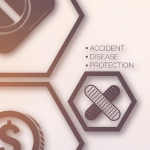What The Guardian Missed About US Ambulance Balance Billing
Media Response
The letter to the editor below was submitted to The Guardian on July 23, following the July 21 publication of the article referenced.
To the Editor of The Guardian,
On July 21, The Guardian published Jessica Glenza’s “Plan to end exorbitant ‘surprise’ ambulance bills heads to Congress.” The inflammatory title and lack of context do no justice to the years of bipartisan collaborative effort leading to the forthcoming report to Congress. As a member of the Advisory Committee on Ground Ambulance and Patient Billing (GAPB) and Immediate Past President of the American Ambulance Association, I believe it is critical to set the record straight.
It is essential to understand that EMS directly bills patients instead of insurers only as a last resort. Sadly, as a frequent entry point to healthcare, EMS often faces the unenviable task of educating people about their limited insurance coverage or high deductibles, both of which are out of our control. As mobile healthcare is entirely decentralized in the United States, it is often unfeasible for small or volunteer-staffed ambulance services to negotiate sustainable in-network rates with dozens of insurance plans. The GAPB Advisory Committee’s recommendations seek to remedy this foundational disconnect between patients, EMS providers, and health plans.
The article notes that some EMS providers are owned by private equity, but overlooks that the vast majority of ambulance services in the United States are small, often conducting only a few dozen patient transports per day. These community-based services—some of which are the sole healthcare provider for miles—face skyrocketing costs for wages, fuel, and medical supplies that threaten their ability to keep their doors open. The collaborative work of the GAPB Advisory Committee sought to address these challenges by proposing recommendations that, if adopted by Congress, would help alleviate these financial pressures while also enhancing patient protection from surprise insurance denials.
The article implies that Patricia Kelmar was the only representative of the public interest on the panel. In fact, another Committee participant was explicitly appointed to represent patient advocacy groups, and as healthcare providers, EMS professionals and physicians consistently advocate for our patients’ well-being. The committee’s composition, as established by Congress within the No Surprises Act, was intentionally diverse and included stakeholders ranging from physicians to elected officials to insurance providers to ensure balance.
Additionally, it is important to clarify that the Health Affairs research cited in the article does not provide data on actual balance bills received by patients. Rather, it roughly estimates only potential balance bills as calculated based on a flawed estimation process. Even if we were to accept Health Affairs estimates as fact, the average balance bill calculated according to their methods would be just a few hundred dollars. This is far from the sole and extreme outlier bill cited in the piece. This distinction is critical as it underscores the need for data-driven policy decisions based on real-world evidence rather than projections and one-off examples.
Finally, the piece misses entirely the largest challenge with the Committee’s recommendations and their potential adoption by Congress. Based on longstanding legal precedent, ERISA plans, which cover about half of Americans through their employers, would not be bound by any legislation drafted based on our report. In Washington state and elsewhere, innovative “opt-in” clauses enable ERISA plans to voluntarily comply with state regulation. We encourage this and hope to see it replicated throughout the nation.
People become first responders because they have a passion for caring for others, and our communities trust them to do just that—24/7. Our Committee’s report to Congress includes 14 key recommendations designed to improve transparency, ensure fair reimbursement rates, and ultimately protect patients by strengthening state and local control. If these recommendations are adopted, they will help remove patients from the middle of billing disputes, allowing EMS providers to focus on our primary mission: delivering life-saving and life-sustaining healthcare around the clock.
For a detailed understanding of our recommendations and the Committee’s work, I encourage reading the full GAPB Advisory Committee report when it becomes available later this summer.
Shawn Baird
Immediate Past President, American Ambulance Association
Member, Advisory Committee on Ground Ambulance and Patient Billing
Portland, Oregon








